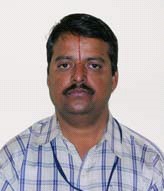Applied Analytical Chemistry
Course Attendees
Still no participant
Course Reviews
Still no reviews
Course Name : Applied Analytical Chemistry
Code(Credit) : CUTM1008(2-1-0)
Course Objectives
- To understand the in fundamental principles for analytical methods (titration, electrochemistry, instrumentation) the basic parameters of water, soil, fuel
- To understand the applicability of suitable analytical techniques for analyzing a specific components in Domestic,Agriculture,Commercial and Industrial samples
Course Outcomes
| COs | Course outcomes | Mapping COs with POs (High-3, Medium-2, Low-1) |
| CO1 | Able to gain Knowledge on various water softening methods, soil analysis methods, fuels, electrochemical phenomena and error analysis | PO1 ( 3) |
| CO2 | Analytical skill and Critical Thinking | PO2(3), PO5(1) |
| CO3 | Use of Tool, Design and Development (Hands-on/Technical skill) | PO3(3) |
Course Syllabus
Module-I (4Hrs)
Water softening processes: Lime-Soda, Zeolite and Ion exchange methods. Removal of DO and dissolved CO2 from water by De-aeration method,Desalination of Brackish water by Reverse osmosis and electro dialysis process,Numericals on calculation of Temporary and Permanent hardness of water,Lime-Soda calculation
Practice
1.Determination of hardness of water by EDTA method. (V. lab)
2.Determination of alkalinity of water. (V. lab)
3.Determination of Dissolved Oxygen in water. (V. lab)
4.Determination of Biological Oxygen Demand. (V. lab)
5.Determination of Chemical Oxygen Demand. (V. lab)
Module-II (2Hrs)
Soil Analysis: Soil profile, Structure, and properties, Determination of soil properties
Practice
6.Determination of specific gravity of the soil by using piknometer. (V.lab)
7.Determination of pH and electrical conductivity of soil sample.(V. lab)
8.Determination of moisture content in soil by oven drying method. (V. lab)
Module-III (3 Hrs)
Classification, combustion and chemical principles involved in fuel, calorific value: gross and net calorific values and their determination by bomb calorimeter , Proximate and ultimate analysis of coal and their importance. LPG, Water gas, producer gas, CNG .
Practice
9.Determination of calorific value of a fuel sample by using Bomb calorimeter.
10. Analysis of flue gases by Orsat’s apparatus.
Module-IV (4 Hrs)
Petroleum: its chemical composition and fractional distillation, cracking of heavy oil residues – thermal and catalytic cracking, knocking and chemical structure, octane number, synthesis and applications of bio-fuels, Photovoltaic cell.
Practice
11.Synthesis of biodiesel by trans esterification process
Module-V (3 Hrs)
Corrosion-Mechanisms, Factors affecting Corrosion; Protection from corrosion.
Practice
12.Estimation of ferrous ion in the given solution using standard potassium dichromate.
Module-VI (2Hrs)
Electrochemical Phenomenon
Electrochemical cell, Electrode potential, Determination of pH of a solution Using Clomel/ Quin Hydrone Electrode.
Module-VII (2Hrs)
Error in Chemical analysis
Types of errors, Accuracy and precision, Absolute and relative uncertainty, mean and standard deviation.
Text Books
- Engineering chemistry By Jain &Jain-16th Edn,2015, Dhanpat rai publications
- Engineering chemistry By Sashi Chawla,3rd Edn,Dhanpati roy publications,2011
- Industrial Chemistry By B.K.Sharma 21 st Edn-2018,Satya Publications4.
Reference Books
- Applied Chemistry By Aruna Kumari-2nd Edition,Paramount publications,2016
- Engineering chemistry by OG Palanna,McGrahill Education(India) private Limited,2009
- Engineering chemistry by K.Sesha Maheswaramma,Mridula.Chuch.PearsonIndia Education services pvt Ltd,2016
- Engineering chemistry by Prasanth Rath,Cengage Learning India pvtLtd,2013
- Engineering chemistry by R.V.Gadag,A.Nityananda, Shetty,I.K.International Publishishing house,2006
- Engineering chemistry –Fundamentals and applications,ByShika Agarwaal-Cambridge University PressEdition,2017
Session Plan
Session 1
Water softening processes: Lime-Soda, Zeolite
https://www.slideshare.net/vishvarajc/lime-soda-process-softening-of-water
Session 2
Ion exchange methods. Removal of DO and dissolved CO2 from water by De-aeration method,
Session 3
Desalination of Brackish water by Reverse osmosis and electro dialysis process.
Session 4
Numericals on calculation of Temporary and Permanent hardness of water,Lime-Soda calculation
https://www.youtube.com/watch?v=3HVJdamCQ9k
Session 5
Determination of Hardness in Water
http://vlabs.iitb.ac.in/vlabs-dev/labs/nitk_labs/Environmental_Engineering_1/experiments/determination-of-hardness-nitk/
Determination of Alkalinity in Water
http://vlabs.iitb.ac.in/vlabs-dev/labs/nitk_labs/Environmental_Engineering_1/experiments/determination-of-alkalinity-nitk/
Session 6
Determination of Dissolved Oxygen in Water
http://vlabs.iitb.ac.in/vlabs-dev/labs/nitk_labs/Environmental_Engineering_2/experiments/determination-of-dissolved-oxygen-nitk/
Determination of Biological Oxygen Demand
http://vlabs.iitb.ac.in/vlabs-dev/labs/nitk_labs/Environmental_Engineering_1/experiments/determination-biological-oxygen-demand-nitk/
Determination of Chemical Oxygen Demand
http://vlabs.iitb.ac.in/vlabs-dev/labs/nitk_labs/Environmental_Engineering_2/experiments/determination-of-chemical-oxygen-demand-nitk/
Session 7
Soil Analysis: Soil profile, Structure, and properties, Determination of soil properties
https://nptel.ac.in/content/syllabus_pdf/105101005
https://www.nrcs.usda.gov/wps/portal/nrcs/detail/
Session 8
Determination of soil properties
https://nptel.ac.in/content/syllabus_pdf/105101005.pdf
https://www.nrcs.usda.gov/wps/portal/nrcs/detail/-NEW JERSY
Session 9
Determine the specific gravity of soil fraction passing 4.75 mm I.S sieve by density bottle.
http://smfe-iiith.vlabs.ac.in/exp3/Objective.html?domain=Civil%20Engineering&lab=Soil%20Mechanics%20Lab
Determination of pH
http://vlabs.iitb.ac.in/vlabs-dev/labs/nitk_labs/Environmental_Engineering_1/experiments/determination-of-ph-nitk/
To determine the water content in soil by oven drying method.
http://smfe-iiith.vlabs.ac.in/exp1/Objective.html?domain=Civil%20Engineering&lab=Soil%20Mechanics%20Lab
Session 10
Classification, combustion and chemical principles involved in fuel
Session 11
calorific value: gross and net calorific values and their determination by bomb calorimeter.
https://www.energypurse.com/calorific-value-of-fuel-and-its-calculation/
Session 12
Proximate and ultimate analysis of coal and their importance.
https://www.slideshare.net/vigneshsekaran520/ultimate-analysis-of-coal
https://www.youtube.com/watch?v=At1qPB2tlis
Session 13
LPG, Water gas, producer gas, CNG.
Session 14
Determination of calorific value of a fuel sample by using Bomb calorimeter
Analysis of flue gases by Orsat’s apparatus
Session 15
Petroleum: its chemical composition and fractional distillation
https://www.slideshare.net/vigneshsekaran520/ultimate-analysis-of-coal
https://www.youtube.com/watch?v=At1qPB2tlis
Session 16
cracking of heavy oil residues – thermal and catalytic cracking
Session 17
knocking and chemical structure, octane number, synthesis and applications of bio-fuels, Photovoltaic cell.
https://www.slideshare.net/friendsrtg/10ic-en-ii-combdelknok
https://www.bing.com/videos/search?q=biofuel+youtube&docid=608038820507615262&mid=8C8C1A1E6534882DB2108C8C1A1E6534882DB210&view=detail&FORM=VIRE
https://www.slideshare.net/WilliamWallace9/solar-photovoltaic-powerpoint
Session 18
Synthesis of biodiesel by transesterification process
Session 19
Corrosion-Mechanisms, Factors affecting Corrosion
https://www.coursera.org/learn/corrosion
https://www.metacafe.com/videos_about/corrosion
Session 20
Protection from corrosion
https://www.learnpick.in/prime/documents/ppts/details/4116/corrosion
Session 21
Protection from corrosion
https://www.coursera.org/learn/corrosion
https://www.slideshare.net/darshkanjiya/corrosionppt-26220504
Session 22
Determination of ferrous ion in the given solution using standard potassium dichromate
Session 23
Electrochemical Phenomenon;Electrochemical cell, Electrode potential
https://www.bing.com/videos/search?q=electrochemical+cell+video+animation&docid=608002493663806233&mid=CB4B21BEEE5217F80350CB4B21BEEE5217F80350&view=detail&FORM=VIRE
https://www.bing.com/videos/search?q=electrochemical+cell+video+animation&&view=detail&mid=CC971B322DA838970494CC971B322DA838970494&&FORM=VDRVR
Session 24
Determination of pH of a solution Using Clomel/ Quin Hydrone Electrode.
Session 25
Types of errors, Accuracy and precision, Absolute and relative uncertainty
Session 26
Mean and standard deviation.
https://www.mathsisfun.com/data/standard-deviation-formulas.html
Case Studies
Our Main Teachers

Dr. M.L.N Acharyulu
Associate Professor Chemistry, H.O.D (Basic Sciences and Humanities ) ,Associate Dean (SPAHS)
VIEW PROFILECommited to the Feild Of Teaching for the past 25 years. Experienced in Presentation skills , Published 25 Journals and 14 Papers in National and International Journals.

